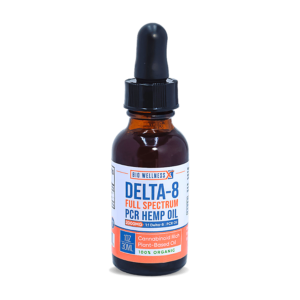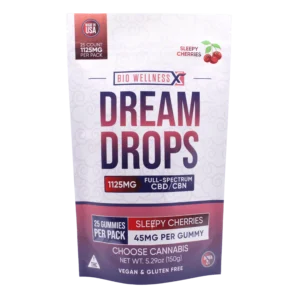key points
Understanding which cannabinoids from the cannabis sativa plant can help you fall asleep quickly, especially when it’s late at night or dinnertime, and you need to make a healthy meal, is crucial.
However, we found a surprising lack of information on whether Delta-9 can make you sleepy. That’s why we’re committed to doing the research for you when the information you need isn’t readily available.
Can Delta-9 THC actually make you sleepy? It’s a question that’s been around for a while. Though more research is needed, studies indicate that THC might help people sleep better by helping them fall asleep faster and potentially enhancing overall sleep quality.
Let’s dig into this topic a little more.
Understanding Delta-9: A Look at the Science Behind Its Effects
Delta-9-tetrahydrocannabinol, also called Delta-9 THC or just THC, is the main substance in the cannabis plant. Among the many compounds in cannabis, THC stands out as the most famous one.
Like every other cannabinoid found in the cannabis plant, Delta-9 THC is a type of chemical that works with the body’s endocannabinoid system, which helps regulate various functions like mood and physical discomfort. When it enters the body, it connects with receptors in the brain and immune system, causing different effects.
Here’s how Delta-9 THC affects the body:
- Feelings of happiness and calmness: Delta-9 THC can make you feel good by interacting with receptors in the brain. This changes how certain chemicals in the brain work, affecting your mood.
- Physical relief: It can also help reduce aches and discomfort by connecting with receptors in the brain and spine, which can lower how much pain your brain feels.
- Makes you hungry: Delta-9 THC often makes people feel hungry, sometimes called the “munchies.” It does this by connecting with receptors that control appetite and eating habits.
- Messes with your memory and thinking: One downside is it can make it hard to remember things or concentrate, especially in the short term. This is because it affects receptors in the brain involved in making memories. This is especially true with large doses like 100mg Delta-9 THC edibles.
- Changes in mood: Delta-9 THC can make you feel really happy or sometimes anxious. We’re not exactly sure how it does this, but it’s probably connected to how it works with the endocannabinoid system and brain chemicals.
The Impact of Delta-9 on Sleep: What You Need to Know
Historical and modern usage of cannabis has led many to consider Delta-9 THC and other plant compounds as potential natural remedies for sleep problems. While more research is needed to understand how cannabis affects sleep fully, some findings suggest a link between cannabis and better sleep.
Multiple studies have found that cannabis can offer therapeutic relief to people with conditions like PTSD, chronic discomfort, and various inflammatory diseases, potentially reducing nighttime wakefulness and improving overall sleep quality. Today, there are other THC variants that can promote an even more restful sleep. Delta-8 THC, derived from the hemp plant, is not only federally legal, but has naturally sedative qualities similar to a relaxing indica strain
The positive outcomes indicate that THC’s interaction with sleep-regulating receptors like CB1 and CB2 receptors may enhance both the duration and quality of sleep. Research suggests that THC can shorten the time it takes to fall asleep, which could benefit individuals with insomnia and other sleep disorders. However, some users may still experience interruptions during sleep.
Delta 9-THC is the most famous substance that causes your body to experience a psychoactive effect, also known as a high, from cannabis products, and its reported benefits make it a promising option for sleep aid, relaxation, physical relief, and other potential therapeutic benefits more research is necessary to confirm its effectiveness.
But there are other THC variants to be aware of – Delta-8 THC, for instance, offers an indica like experience that can help users relax and promote a restful sleep.
However, while multiple studies have shown positive outcomes, it’s important for consumers to understand the uncertainties surrounding the connection between cannabis and sleep.
THC typically brings about relaxation, euphoria, and heightened creativity. After consuming THC gummies, you’ll first feel a gradual sense of relaxation and improved mood. These effects gradually increase until they reach their peak. As the effects wear off, you may feel a calm and serene sensation before returning to your usual state.
In some cases, Delta-9 THC may trigger feelings of anxiety or paranoia, especially with higher doses. To avoid these effects, it’s best to start with a small dose and increase it gradually as you become more familiar with how it affects you.
Delta-9 and Sleep Latency: Does it Help You Fall Asleep Faster?
Delta-9 THC often brings about common therapeutic potential: relaxation and drowsiness. Relaxation means feeling calm and comfortable, which can be helpful for people dealing with stress or tension. It happens when the body releases its natural chemicals called endorphins, which can reduce stress and lift mood.
Drowsiness is the feeling of being sleepy, and it can assist people who have trouble sleeping. It occurs when the body releases its natural sleep hormone, melatonin. Melatonin helps control sleep and wake patterns, so it’s useful for those struggling with their sleep routines.
Both feeling drowsy and relaxed can aid in falling asleep because it’s easier to do so when the body is calm. This is because being in a relaxed state lowers stress hormones and increases feel-good endorphins, making sleep more achievable.
Potential Side Effects of Delta-9 on Sleep Quality
Delta-9 THC has gained attention for its potential to aid sleep, but it’s essential to consider the potential risks of it along with the benefits. Here’s a closer look at some important factors to remember:
Feeling Tired or Foggy:
Like the morning-after grogginess from drinking, Delta-9 THC can leave you feeling foggy or tired even after a full night’s sleep. This can be concerning for people who need to stay alert, like those with busy jobs or who operate machinery.
Dreaming Less:
Delta-9 THC can shorten the time you spend dreaming during REM sleep. While some may see fewer nightmares as a good thing, REM sleep helps with emotions and memory. Less dreaming could mean disrupted sleep cycles.
Getting Used to It:
Using Delta-9 THC regularly might mean needing more to get the same effects over time. This could lead to feeling like you can’t sleep without it. When you stop or cut down, you might have withdrawal symptoms like mood swings or trouble sleeping.
Mixing with Other Stuff:
Delta-9 THC can interact with other drugs in unexpected ways. Combining it with other things like alcohol or certain meds can make you extra drowsy or even affect your breathing. People with health issues like heart problems or mental health conditions might have stronger symptoms when using Delta-9 THC.
Comparing Delta-9 vs Delta-8 THC for Sleep
When deciding between the two cannabis varieties Delta-8 and Delta-9 for better sleep, it’s crucial to focus on how these substances affect you, not just their sedative properties but also the overall experience they offer.
Delta-8 THC and Delta-9 THC both come from the cannabis sativa plant, which naturally produces more than 100 cannabinoids or active constituents. However, while the plant contains significant amounts of Delta-9 THC, it contains very little Delta-8 THC, a minor cannabinoid.
Like Delta-8, Delta-9-tetrahydrocannabinol (Delta-9) is a naturally occurring cannabinoid in hemp. But unlike Delta-8, it’s naturally abundant – it’s responsible for the effects famously associated with smoking weed. It’s the cannabinoid most people have in mind when they say “THC.” Recreational cannabis use, which is illegal in many US states, is what made Delta-9 popular. However, Delta-9 is legal when derived from hemp and has many therapeutic benefits.
For those suffering from sleep disorders, Delta-8 has become quite popular. This is because Delta-8 has naturally sedative qualities and can provide natural relaxation and a sense of calm. Just keep in mind, while Delta-8 THC induces a high, but it’s about half as potent as Delta 9.
Delta-9 also offers euphoric and balanced effects, but it’s generally more uplifting than Delta-8 and twice as potent.
Dosage and Timing: How Delta-9 Can Affect Sleep Differently
Getting the best sleep with Delta-9 THC involves finding the right dosage and timing. Unlike other cannabinoids, the impact of Delta-9 on sleep can vary depending on when and how much you take along with your body weight and other factors.
Dosage Matters:
Finding the optimal dosage of Delta-9 THC for sleep is crucial. While smaller doses may induce relaxation, larger doses can lead to sedation, promoting deeper sleep. However, it’s essential to start with a low dose and gradually increase it to avoid unwanted side effects.
Timing is Key:
The timing of Delta-9 THC consumption also plays a significant role in its sleep effects. Taking it too early may result in drowsiness during the day while consuming it too late could disrupt your sleep cycle. Experimenting with different timings can help determine the best window for Delta-9 THC to promote restful sleep.
Consult with a healthcare professional or sleep specialist if you have prior medical conditions before consuming any cannabinoid. The healthcare professional can provide personalized guidance on dosage and timing for Delta-9 THC use to improve sleep quality.
Combining Delta-9 THC and CBN for Better Sleep
To improve your sleep, it is recommended to combine Delta-9 THC and CBN in order to leverage their synergistic effects.
Delta-9 THC, the primary psychoactive compound in cannabis, is well-known for its sedative properties and ability to induce relaxation, which ultimately helps in falling asleep.
Conversely, CBN (cannabinol), a cannabinoid formed as THC ages and oxidizes, is believed to have potent sedative effects, making it effective in promoting sleep.
Using CBN and THC together can lead to a deeper, drowsier high compared to using THC alone, making this combination more effective for sleep.
However, it’s crucial to consider individual tolerance levels and consult a healthcare professional before combining cannabinoids for sleep purposes, especially when dealing with ultra-potent THCp products.
Final Thoughts: Can Delta-9 THC Make You Sleepy
Understanding sleep aids can be tricky. Lately, Delta-9 has caught attention as a possible way to improve sleep quality. It’s said to help people fall asleep faster, sleep deeper, and wake up less during the night, making it appealing for those struggling with sleep.
But, like any solution, it has its pros and cons. Some people might feel groggy in the morning after using it, or it could affect how well they remember their dreams. There are also concerns about getting used to it or becoming dependent on it. Plus, since it’s a controlled substance, there are rules about using it, and it might not be available everywhere.
The main thing to remember is that everyone’s sleep needs are different. What works great for one person might not work for another. It’s essential to know as much as possible about Delta-9 before deciding if it’s right for you.

Legal Disclaimer:
By reading this information presented, you agree to release the author of any liability that comes from using this data. This post contains no legal advice. Claims about cannabinoids have not yet been approved by the FDA. Read the full legal disclaimer here.
Other Articles That May Interest You
- Is Delta-9 THC a Controlled Substance?
- Exploring Delta-9 THC Tinctures
- Delta-9 THC Gummies Review
- A Scientific Look at Delta-9’s Anti-Inflammatory Properties
- Is Delta-9 Legal?
- Is Delta-8 Legal in California?
- Does Delta-9 get you high?
- Where to buy Delta-8 gummies in Long Beach?
- Is Delta-9 a controlled substance?
- Is marijuana legal in California?
- Where to buy THCp gummies in California
References:
- Hemp Production and the 2018 Farm Bill – 07/25/2019 | FDA
- The Controlled Substances Act (dea.gov)
- (THCA-A) reduces adiposity and prevents metabolic disease
- THC is a potent PPARγ agonist with neuroprotective activity
- THCa markedly alleviates liver fibrosis and inflammation
- Cannabis for Chronic Pain: Challenges and Considerations
- Neurological Disorders in Medical Use of Cannabis: An Update
- Practical considerations in medical cannabis administration and dosing
- Comprehensive Review of Medicinal Marijuana, Cannabinoids, and Therapeutic Implications in Medicine and Headache
FAQs About Delta-9 and Sleep
While natural and generally considered safe, Delta-9 THC can interact with certain medications, particularly those that affect the central nervous system. It’s essential to consult a healthcare professional before combining Delta-9 THC with other medications.
Rapid eye movement (REM) sleep is a stage of sleep characterized by rapid eye movements and vivid dreaming. Delta-9 THC may affect REM sleep, potentially reducing the time spent in this stage.
Yes, delta-9 THC can have side effects, including dry mouth, red eyes, increased heart rate, and impaired coordination. There’s also an increased risk of anxiety or paranoia, especially with high doses. Finally, even hemp-derived Delta-9 THC will show up on drug tests – so be sure to take into account any random tests.
The legal status of Delta-9 THC, like any other component of other cannabis plants, varies depending on where you are and which plant it is derived from. In some places, it’s legal for medical or recreational use, while in others, it’s still illegal. In addition, hemp-derived THC is more accepted than traditional weed products.
Along with other potential medical benefits, Delta-9 THC may help with certain sleep problems by interacting with the endocannabinoid system, promoting relaxation and reducing the time it takes to fall asleep.
Delta-9 THC has the potential for addiction, especially with frequent or heavy use. It affects the brain’s reward system, leading to dependence in some individuals.












